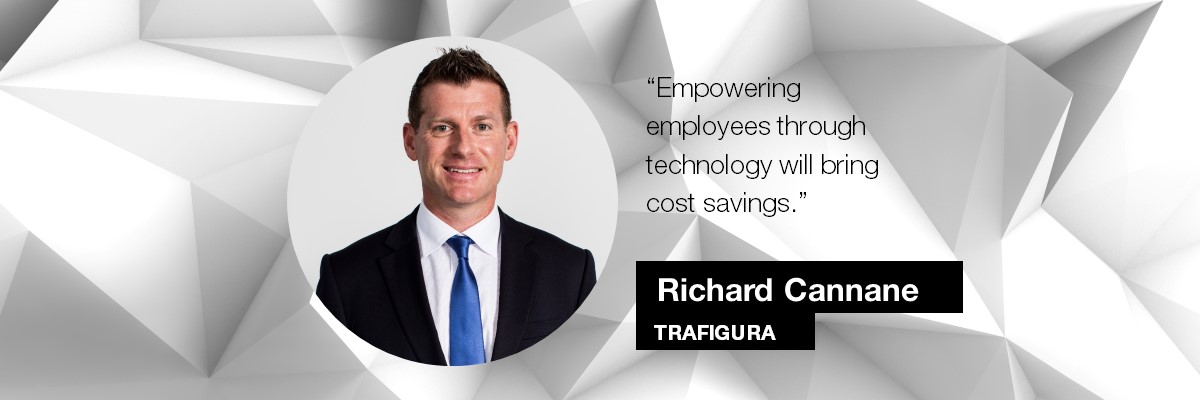Do Soft Skills Still Matter in the Era of Digital Transformation?
Interview with Richard Cannane – Global Training & Development Manager at Trafigura.
Organizations worldwide are changing at a rapid pace, adapting and integrating new technologies to revolutionize the workplace and to improve performance. Experts agree that technology will bring significant disruptions into the structure and the processes of work. Top performing organizations are those that have already taken significant steps towards becoming more digitally driven.
However, what will be the impact of that technology advancement to the workforce and how do you carry those individuals along with those changes? And if global processes are being shaped by technology advancement, how important will communication, interpersonal and other soft skills still be?
Q: How will organizations operate in the future?
“I think there are key characteristics already in development within top performing companies, only to gain more ground in the future. The organization of the future will be a global one, comprised of a variety of job configurations: home vs office, full-time vs part-time and contingent work. I observe an accelerated evolution towards the matrix organization, where global business structures work seamlessly with local expertise to make faster and more efficient business strategies. To support such structures, job descriptions and on-boarding methods will become increasingly efficient and transparent to allow for global staff to fill available short- and long-term positions.”
“Technology will keep on creating new challenges and opportunities for organizations within this changing landscape. For example, AI, blockchain and robotics bring the potential of increased productivity by measuring and anticipating workload as mapped to current and projected headcount. The Life span of skills will become shorter, leading to increased and continuous efforts to invest in relevant skills building, while role automation and increased electronic controls will also allow for better alignment between performance and feedback.”
Q: How does technology impact the performance of the workforce and how is this related to communication?
“Empowering employees through technology will bring cost savings, a vital point for organizations working in industries where margins are slim. Inefficient companies will drop away quickly, making room for the savvy market players. Therefore process-driven tasks need to be executed through the smart use of technology tools in order to reduce errors and increase efficiency.”
“The organization of the future must have a seamless on-boarding process via training aligned with company’s core competencies, promoting inter-departmental knowledge sharing and movement of staff between roles. Increased self-training and continuous training to remain highly skilled and relevant will be vital. This means that the organization of the future is not defined just by technology, but in addition by things such as increased soft skills within the workforce and a strong focus on overall happiness at work. Non-monetary factors such as work-life balance, L&D opportunities and increased dedication to environmental and social responsibilities will become more and more relevant.”
Q: Which role do soft skills play in your organization?
“Soft skills play a critical role at Trafigura. From our experience, soft skills may differ across the company and can be defined for each department and are often critical to roles and functions. The relevance of soft skills for Trafigura have recently been explicitly defined by our managers. These skills are in vogue with our staff due to increased profiling and training efforts, mapping training material to needs and competencies.
“Corporate training programs are usually built around 5 overarching themes: induction, cross-departmental knowledge, IT, technical and soft skills. Soft skills training relates to such aspects as interpersonal skills, emotional intelligence and language capabilities. For full effect, they need to be linked to a company’s competencies to ensure that there is a structured strategy to their introduction and embedding.”
“As Trafigura´s 25th anniversary approaches – in 2018 – we look forward to take advantage of the momentum and highlight the success of soft skill mapping for the present and future of our organization.”
Richard Cannane is Global Training & Development Manager at Trafigura (Geneva), a global commodities trading company. He joined Trafigura in 1999 in the Metals & Minerals Operations department. Between 2007 and 2014 he was the global manager for Lead & Zinc Concentrates Operations as well as a project manager for processes and systems integrations. He is a founding member of the HSEC committee. Richard was speaker at the annual Speexx Exchange in Berlin. Register your seat here.
